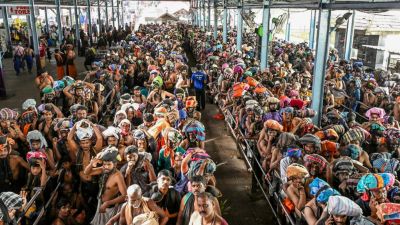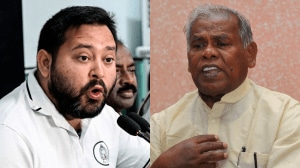Prachanda for ‘equidistance’ in ties with India, China
Prachanda has said that the Maoist-led govt would take ‘strong measures’ against ‘anti-China activities’ in Nepal

Nepal Maoist supremo Prachanda, who is poised to lead the next government in the Himalayan nation, has underlined his desire to follow a policy of ‘equidistance’ in relationship with giant neighbours India and China.
The top Maoist leader, who has now emerged as the pivot in Nepal politics after leading a decade-long armed struggle, also expressed his eagerness to visit the village of the great revolutionary leader Mao Zedong in China for greater inspiration.
“Equidistance means not siding with one country against another. My exact meaning of equidistance is to have good relations with both the neighbours,” he said in an interview to the state-run China Daily.
The CPN-Maoist party, which emerged as the surprise single biggest victors in landmark elections to the constituent assembly in April, is expected to lead a coalition government to rebuild the Himalayan nation after a bloody civil war that killed over 13,000 people.
He said the Maoist-led government would take ‘strong measures’ against ‘anti-China activities’ in Nepal where Tibetan activists have been staging protests regularly against Chinese rule in Tibet.
The newspaper quoted him as saying that the new Maoist-led government would discuss with India the open border, which enables Tibetan demonstrators to come to Kathmandu from Dharamsala, the Dalai Lamas base in India.
“We will not tolerate anti-China activities on our soil and we will take strong administrative measures to control these activities,” he stressed.
The chaotic Cultural Revolution in neighbouring China inspired Prachanda, as did Peru’s Shining Path Guerrillas, who also took their inspiration from the revolutionary theories of Chinese communist leader Mao Zedong.
Prachanda, a former teacher, told the daily in Kathmandu that he was eager to visit the communist nation. “I am very eager to visit China,” he said, adding, “When our Communication minister (Krishna Bahadur Mahara) was there (in China) he was instructed to prepare for my visit. I hope I will soon be in Beijing.”
“I want to go to Chairman Maos village and home…to get greater inspiration by seeing and feeling (the place),” Prachanda, whose outfit plunged into electoral politics after signing a landmark peace deal in 2006 and laid the foundation for the abolition of the 240-year-old monarchy in Nepal, said.
With regard to foreign relations, Prachanda said ideology would ‘not be a barrier’.
The rebel leader initially aimed to make Nepal into a communist republic, but now he has tempered those demands with willingness to work within a multi-party system.
“We are eager to have diplomatic relations with countries which do not share our ideology,” he noted.
About relations with the US, which still keeps the Maoist outfit on its terrorist list, he said, “Some discussions are going on… they said they are going to change the previous policy but it will take some time.”
Prachanda said the US ministers he had met with had also said they would continue the joint projects in Nepal as also other economic aid.



- 01
- 02
- 03
- 04
- 05




























